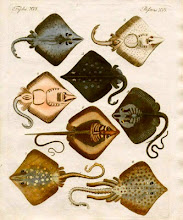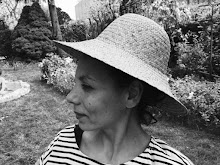Now the hour bows down, it touches me, throbs
metallic, lucid and bold:
my senses are trembling. I feel my own power –
on the plastic day I lay hold.
Until I perceived it, no thing was complete,
but waited, hushed, unfulfilled.
My vision is ripe, to each glance like a bride
comes softly the thing that was willed.
There is nothing too small, but my tenderness paints
it large on a background of gold,
and I prize it, not knowing whose soul at the sight,
released, may unfold . . .
[Poems from The Book of Hours]



